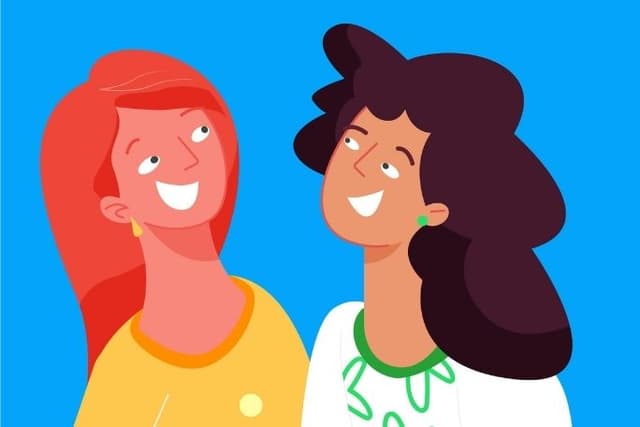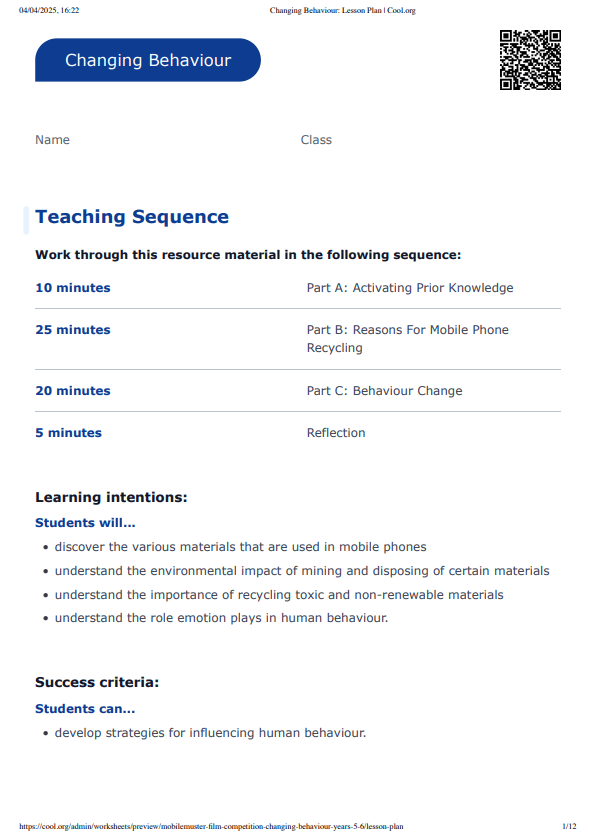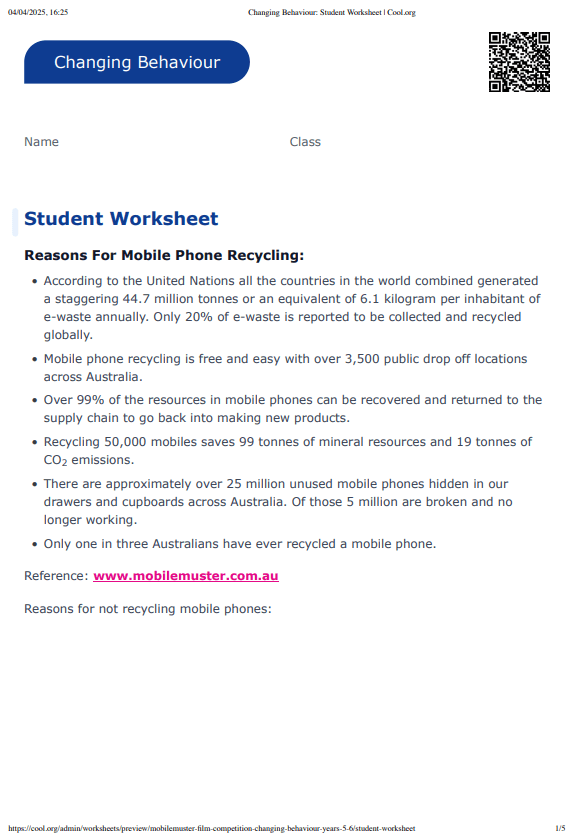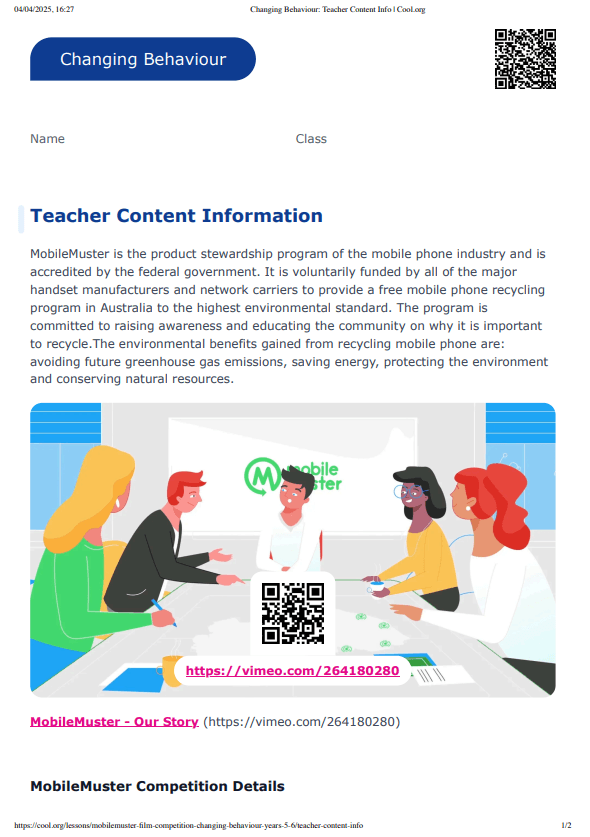
Changing Behaviour
Lesson1 of 3 in this unit
PrimaryYear 5 - 6Humanities and Social SciencesEnvironmentalRecyclingSustainabilityEconomicDesign ThinkingSystems Thinking
Summary
Lesson Guides and Printables
Lesson Plan

Student Worksheet

Teacher Content Info
